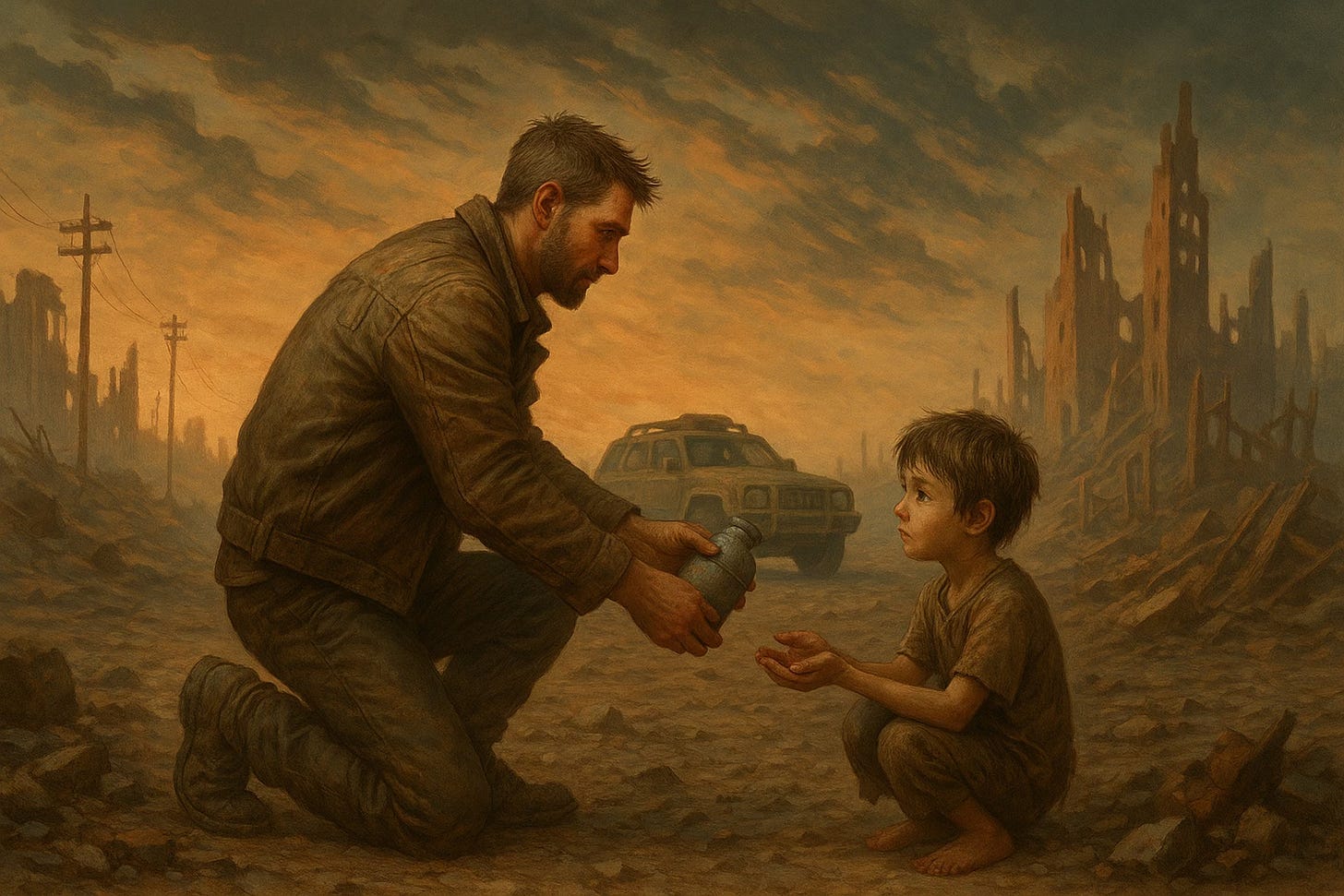The Positive Side of Apocalyptic Thinking
Apocalyptic thinking has gotten a bad reputation, and for good reason. Too often it manifests as fear-based politics where every election becomes an existential crisis, or doom-scrolling that makes us feel helpless instead of empowered. This unproductive form of apocalyptic thinking breeds cynicism and pessimism, creating a tendency to view our fellow humans as enemies rather than partners in navigating an uncertain world.
But apocalyptic thinking doesn't have to be pessimistic, divisive, or paralyzing. I recently read a book that offers a refreshing perspective on this topic: "A Field Guide to the Apocalypse: A Mostly Serious Guide to Surviving Our Wild Times" by Athena Aktipis, the Director of the Interdisciplinary Cooperation Initiative and a psychology professor at Arizona State University. Her work suggests that apocalyptic thinking can actually serve important psychological functions and promote cooperation and progress when we approach it with the right mindset.
After reading this book, I reached out to Athena to discuss her research for Profectus Magazine. I'm excited to share this new interview I conducted with her, which you can read in full here.
When I asked Athena how she conceptualizes the apocalypse, her response highlighted what I believe is a critical insight for improving how we think about major challenges. As she explained in our interview, "A lot of people do think of the apocalypse as the literal end of the world, but I take inspiration from the original Greek meaning: a revelation, an uncovering of deeper truths. An apocalypse doesn't have to be a global cataclysm—it might just be the end of the world as we know it. In that sense, apocalypses are moments of reckoning that force us to confront our assumptions and adapt. These moments—however difficult—can reveal hidden realities, clarify our values, and push us to grow.” She further noted that “we can use the disruption to expand our skills, our thinking, and our social networks. That shift in mindset makes us more prepared, more adaptable, and less afraid of the unknown."
This perspective offers an important counter to much of the apocalyptic messaging we encounter today, which often encourages hopelessness and resignation, as well as anti-human sentiments. Instead of reinforcing despair and disdain for our own species, we need to champion the human characteristics that have consistently empowered us to overcome adversity, solve seemingly impossible problems, and build a better future. Humans are incredibly agentic, resilient, collaborative, creative, and innovative. As Athena noted, “If we assume the world is doomed, we’ll stop trying. But if we approach our changing world with curiosity and urgency, there’s so much we can do.”
Even dark or disturbing apocalyptic narratives can serve constructive purposes if we approach them with the right mindset. I love apocalyptic and dystopian movies like Mad Max, Blade Runner, 28 Days Later, and Children of Men, as well as video game series like Fallout and The Last of Us and I am also optimistic about the future. Being a fan of this kind of science fiction and horror hasn’t made me less hopeful. In fact, I think darker content can serve important psychological and social functions that are useful for building a brighter future. When I asked Athena her take she agreed and highlighted ways that these stories can help us prepare for and address potential threats. She noted that,”Apocalyptic fiction is a safe way to explore scary futures. It lets us pay shared attention to possible threats and practice imagining responses. Fiction lowers our defenses and lets us engage with uncomfortable ideas. It also helps with coordination. If we all see the same risks in a story, we’re more likely to be able to cooperate in addressing them in real life. Stories can be a way to simulate futures together. They activate our cooperative, communicative, and imaginative capacities—all key to navigating uncertainty.”
In a previous newsletter, I discussed research by Coltan Scrivner and his colleagues that is consistent with the idea that our engagement with apocalyptic fiction can be psychologically useful. They found that fans of movies about alien invasions, apocalyptic events, and zombie outbreaks scored higher on measures of psychological resilience and reported feeling better prepared for real-world challenges.
I want to emphasize Athena's excellent insight about altruistic behavior during adversity. Her research through The Human Generosity Project reveals that people reliably offer assistance to others during unpredictable and uncontrollable challenges like natural disasters or droughts without expecting anything in return. This finding serves as a powerful reminder that human resilience isn't just an individual trait but also a deeply social enterprise, rooted in our impulse to help others precisely when circumstances seem most apocalyptic.
As we navigate real uncertainties in our world, we need apocalyptic thinking that enhances rather than diminishes our sense of human potential. This means approaching change with curiosity and hope rather than dread, viewing challenges as opportunities for growth rather than threats to survival, and maintaining confidence in our shared agentic capacity to create meaningful progress even when the path forward remains unclear.
Have a great weekend!
Clay

